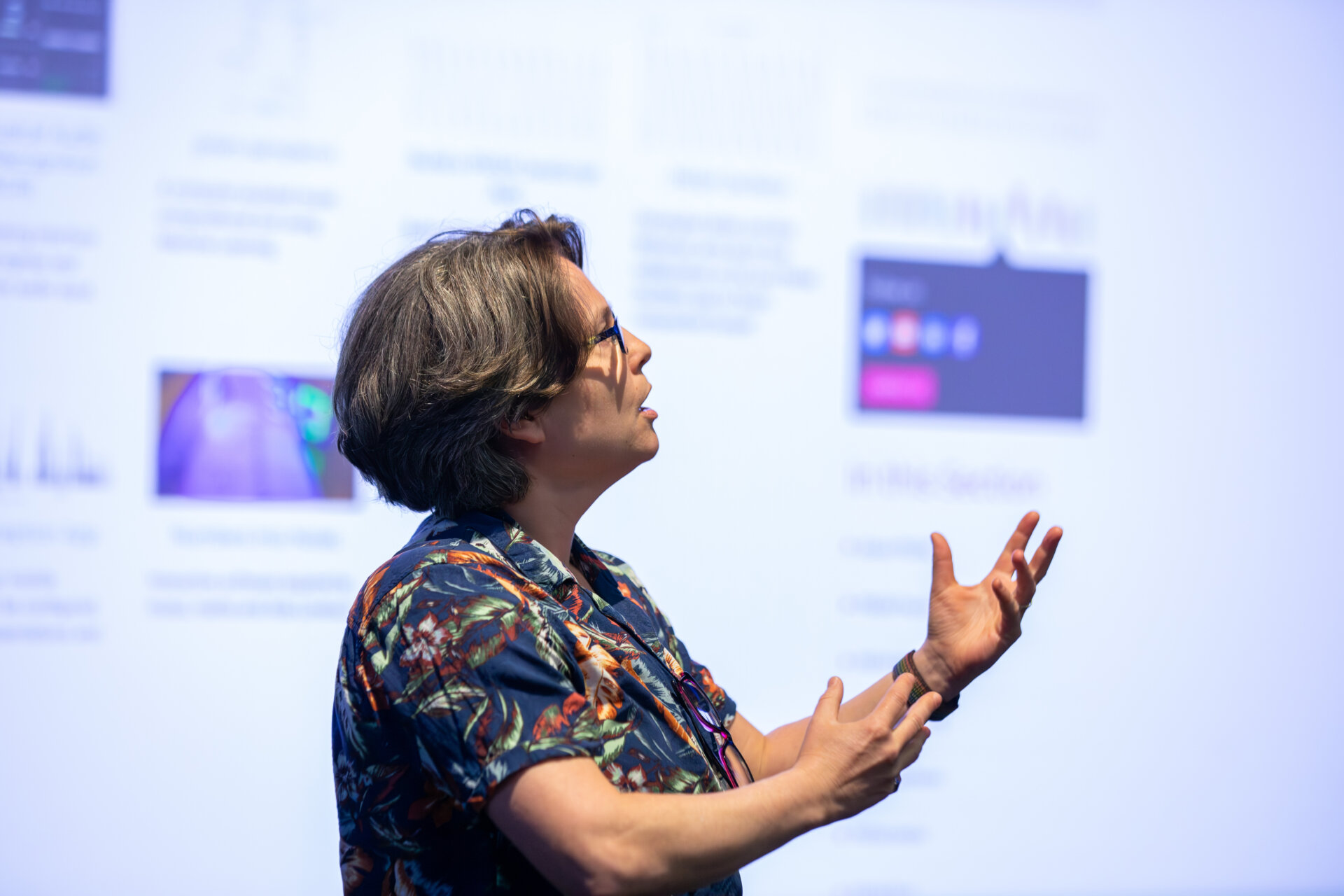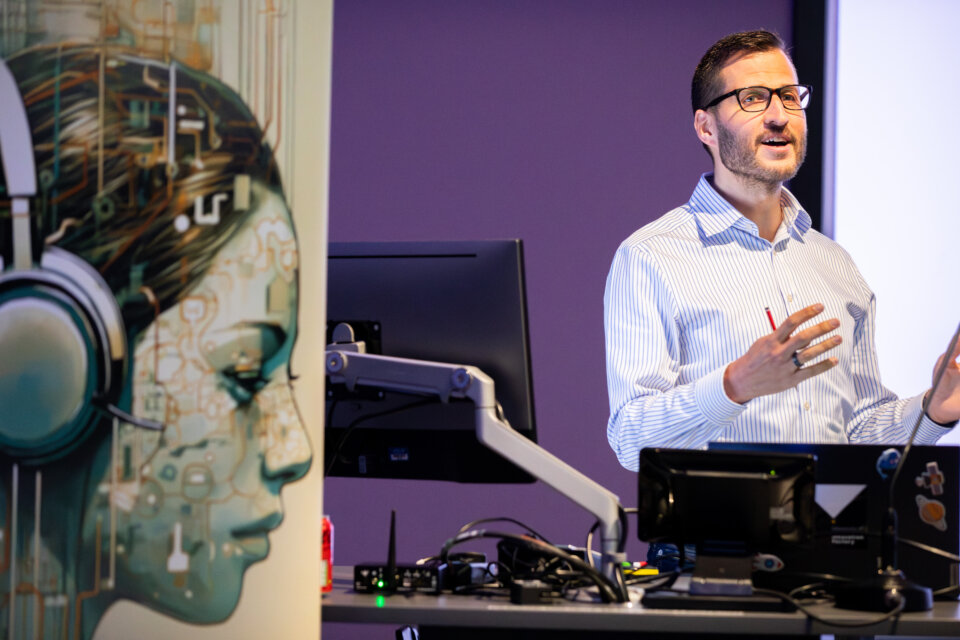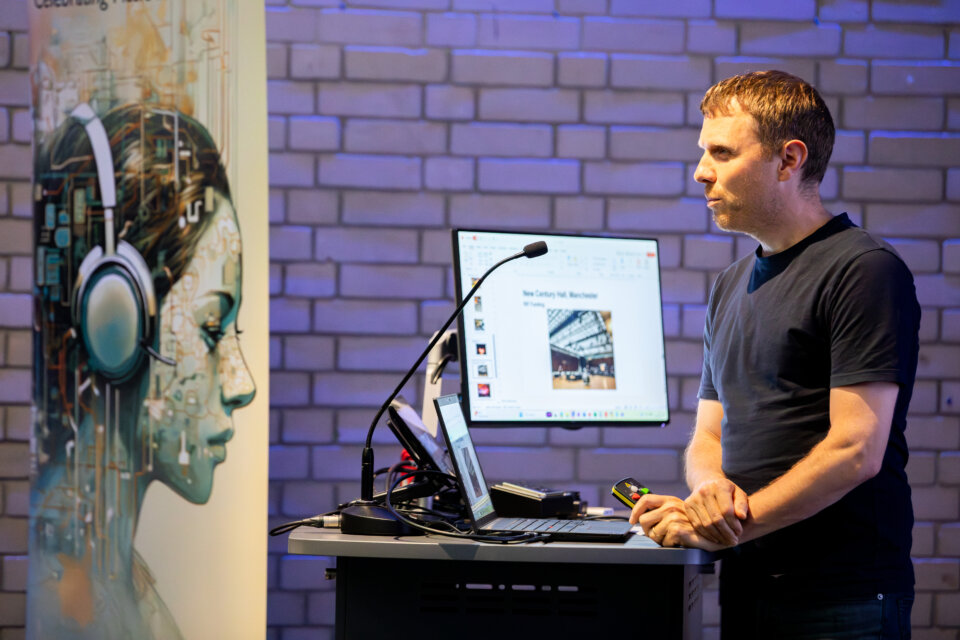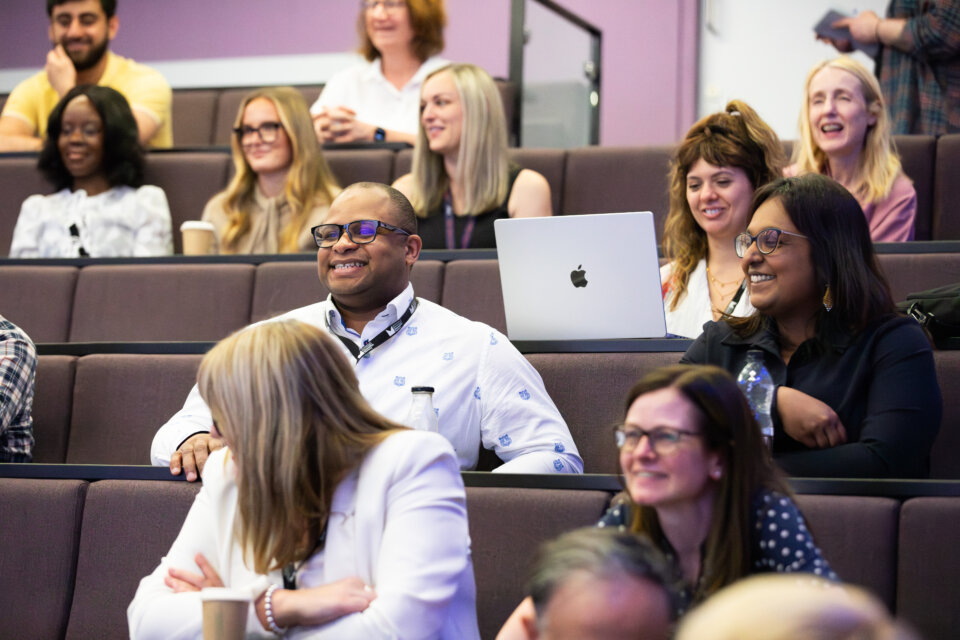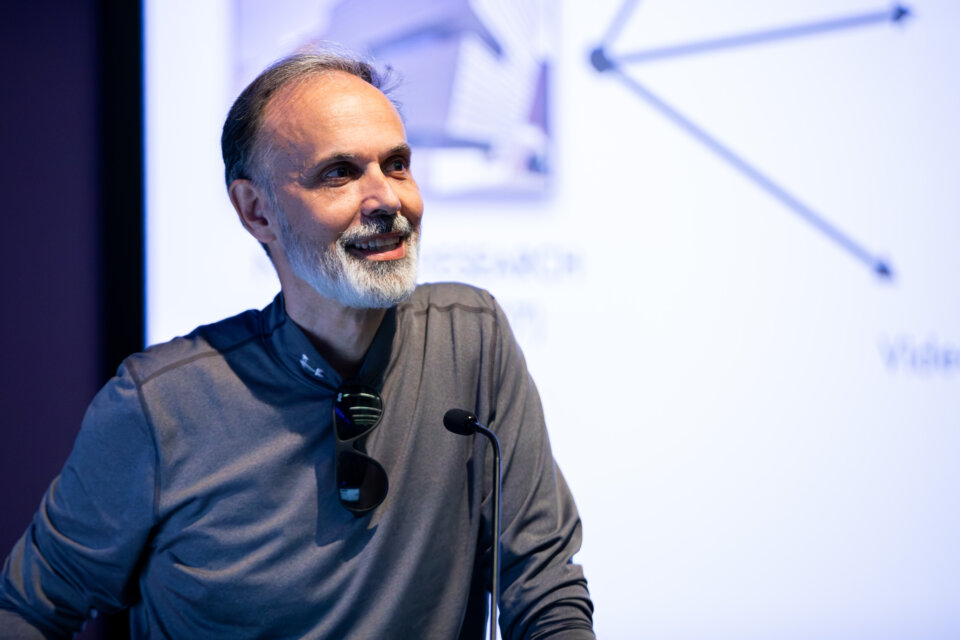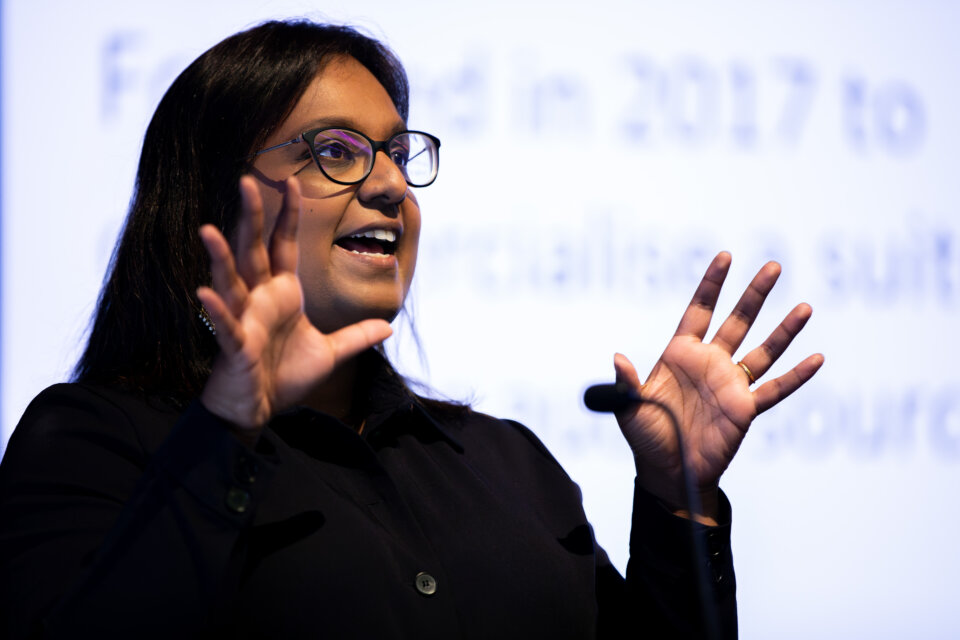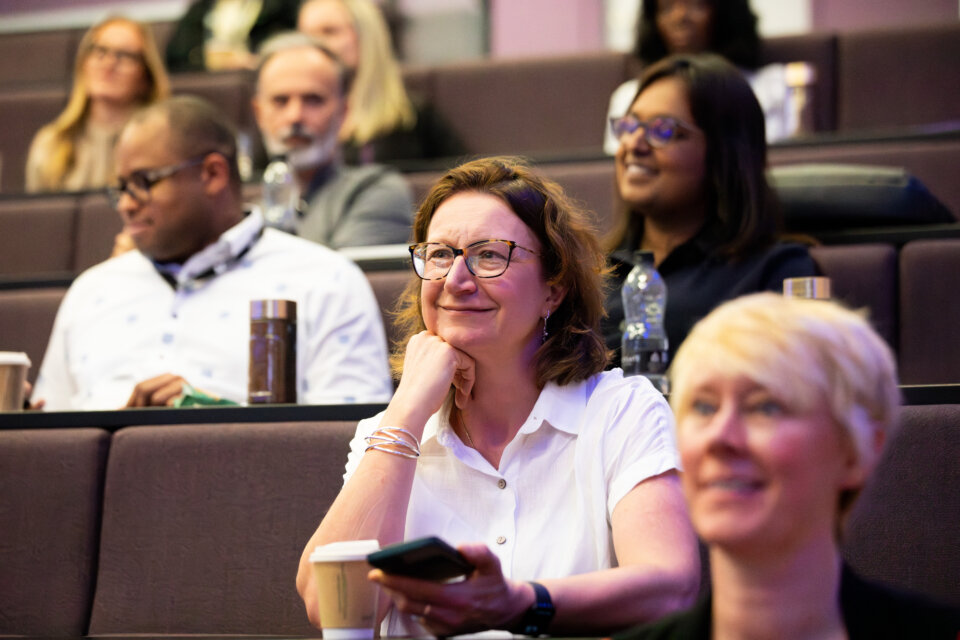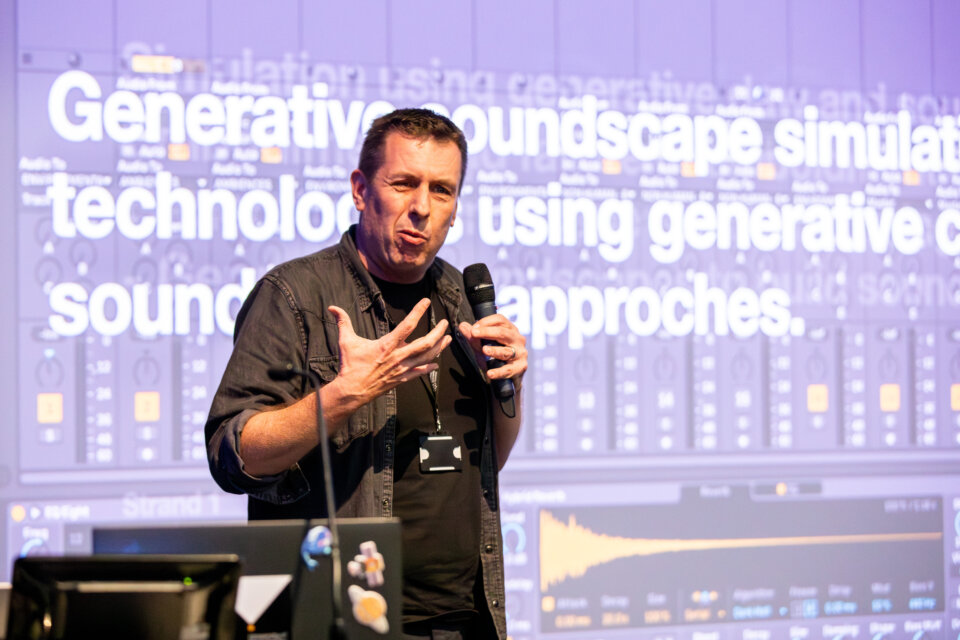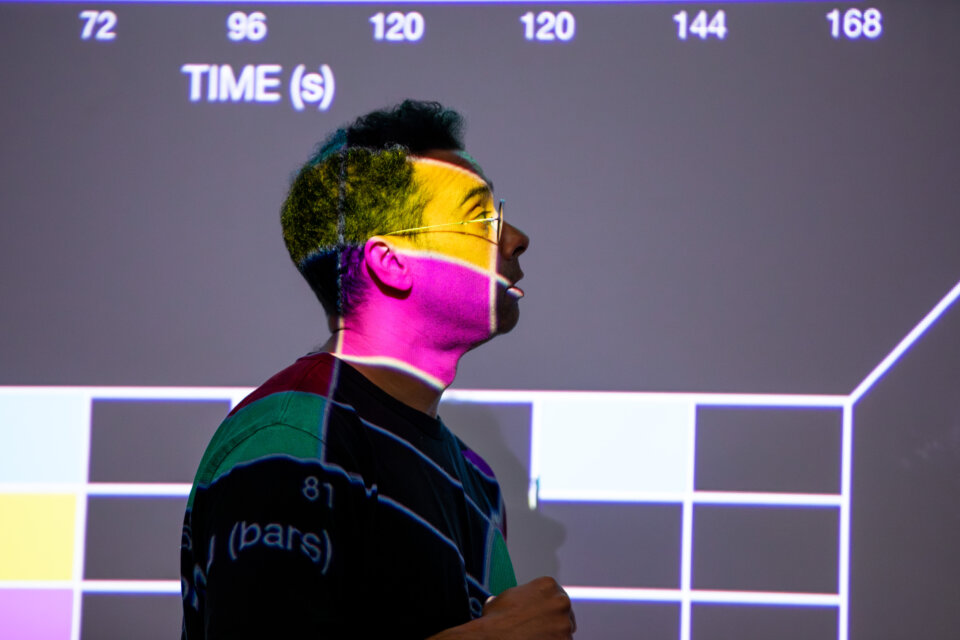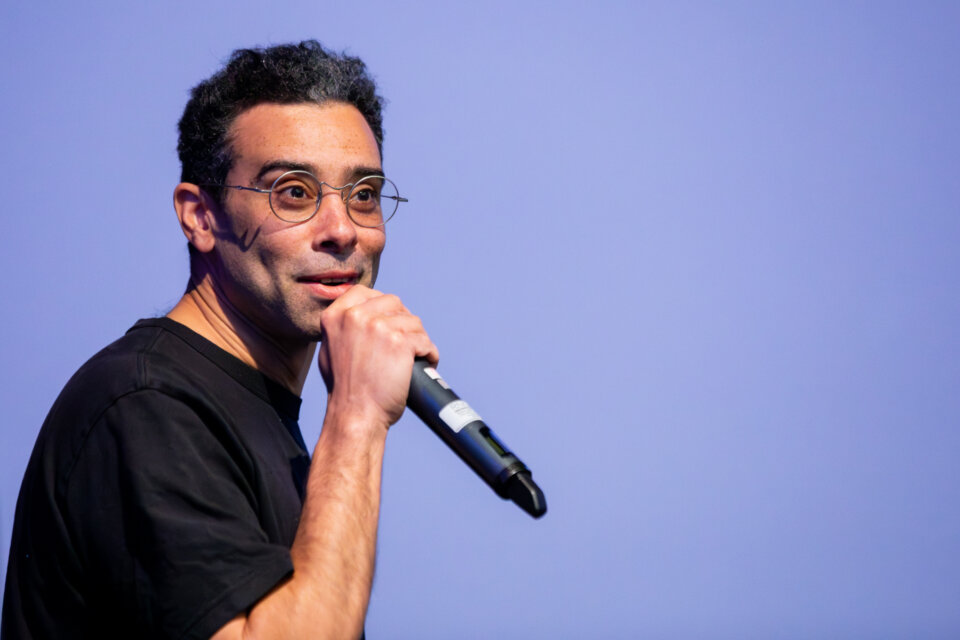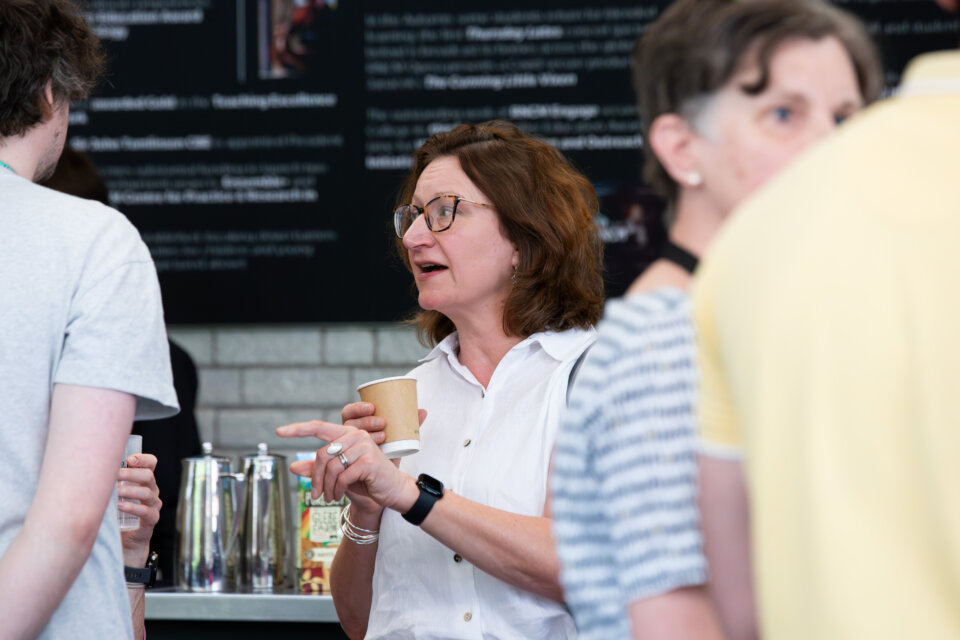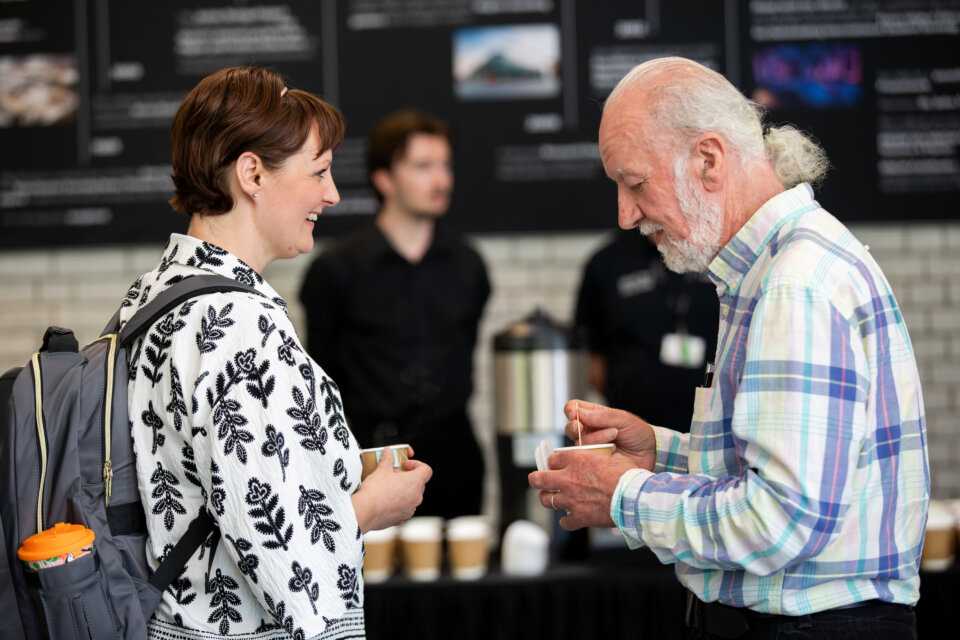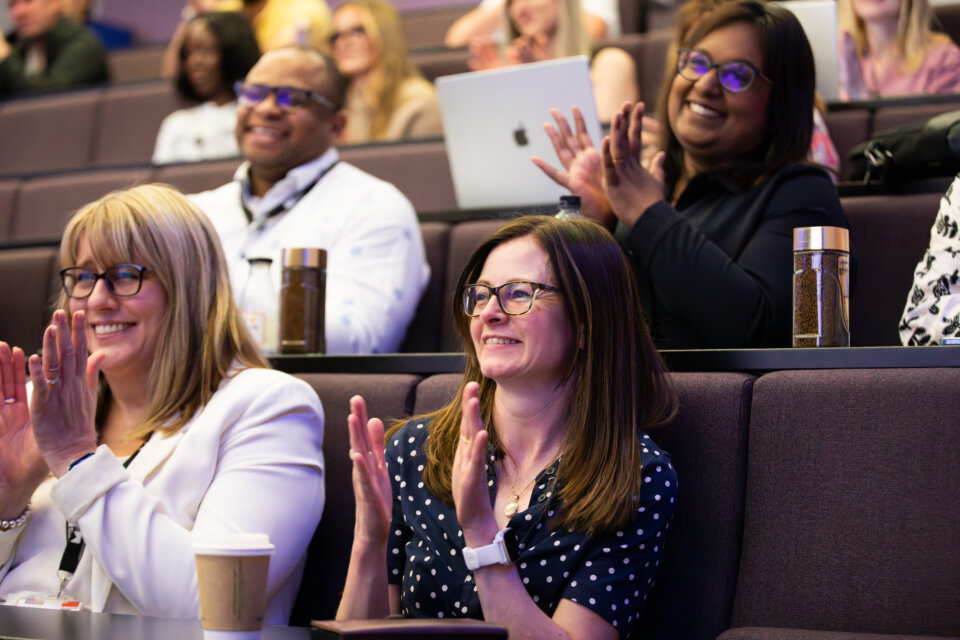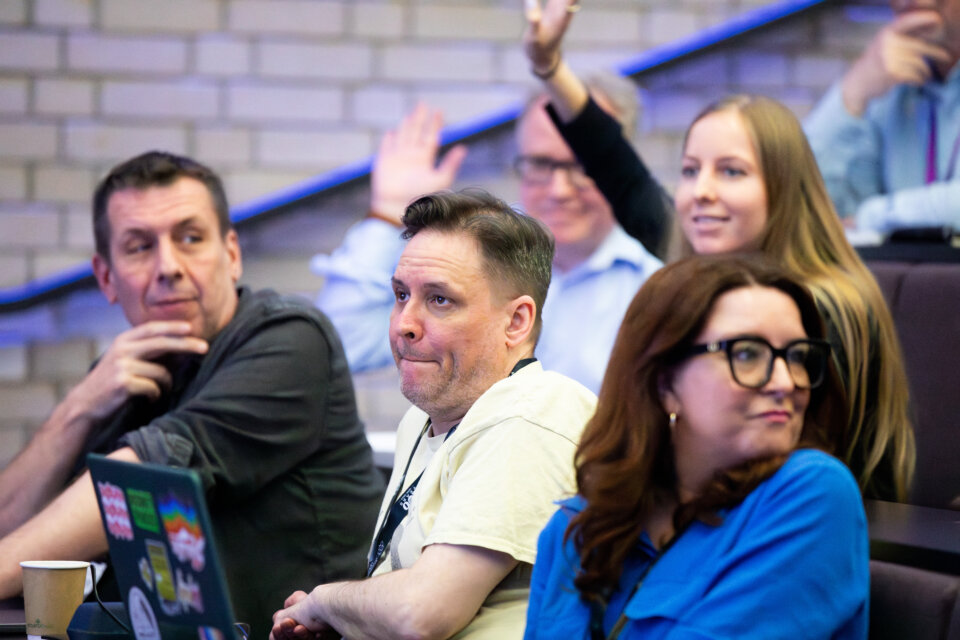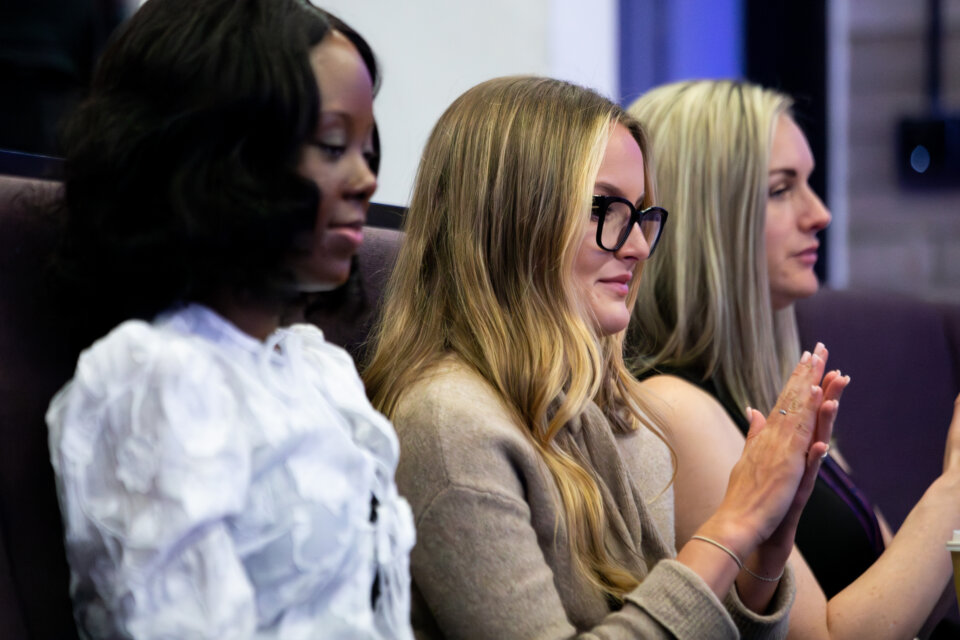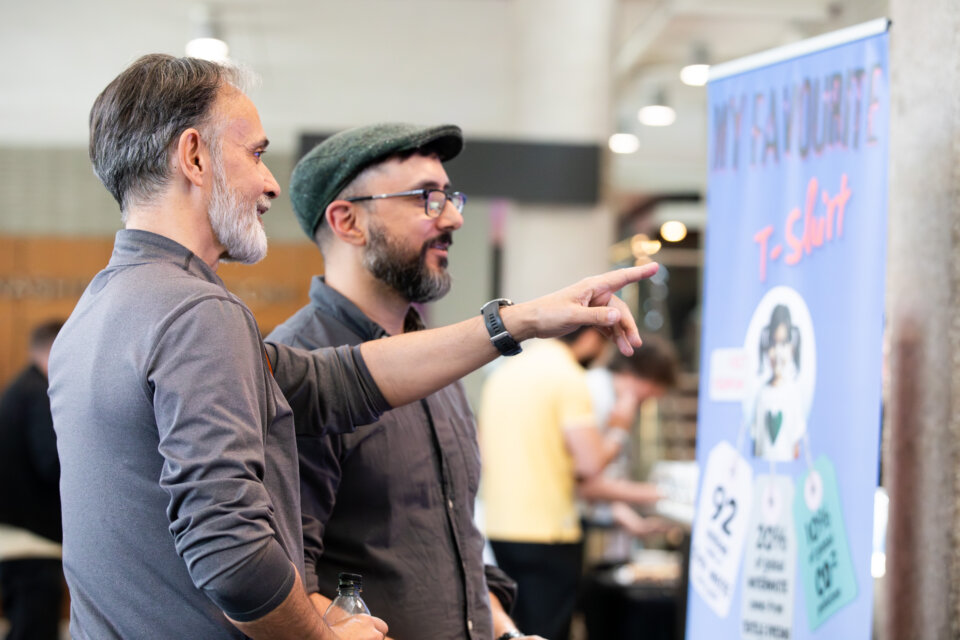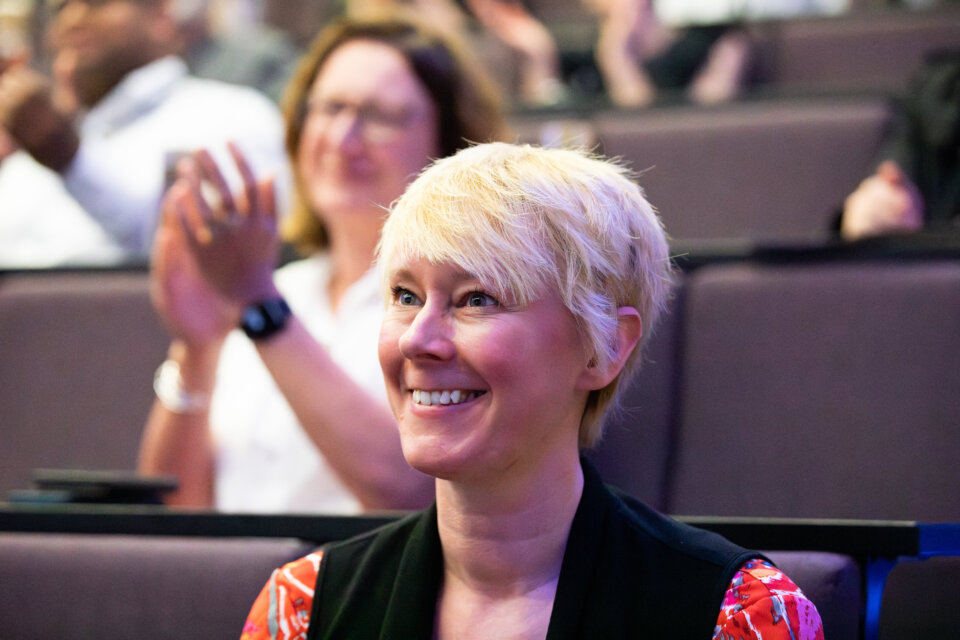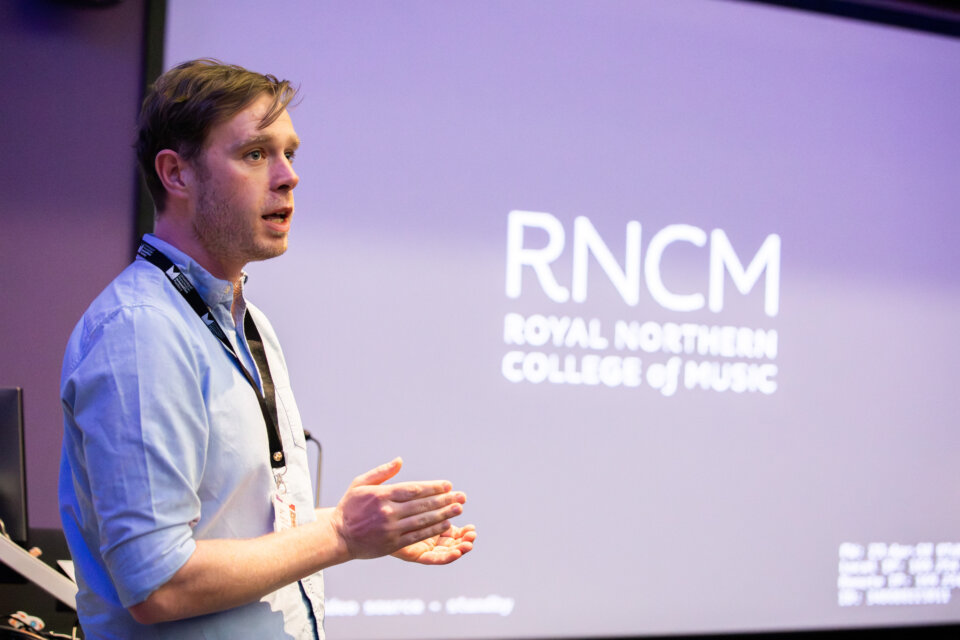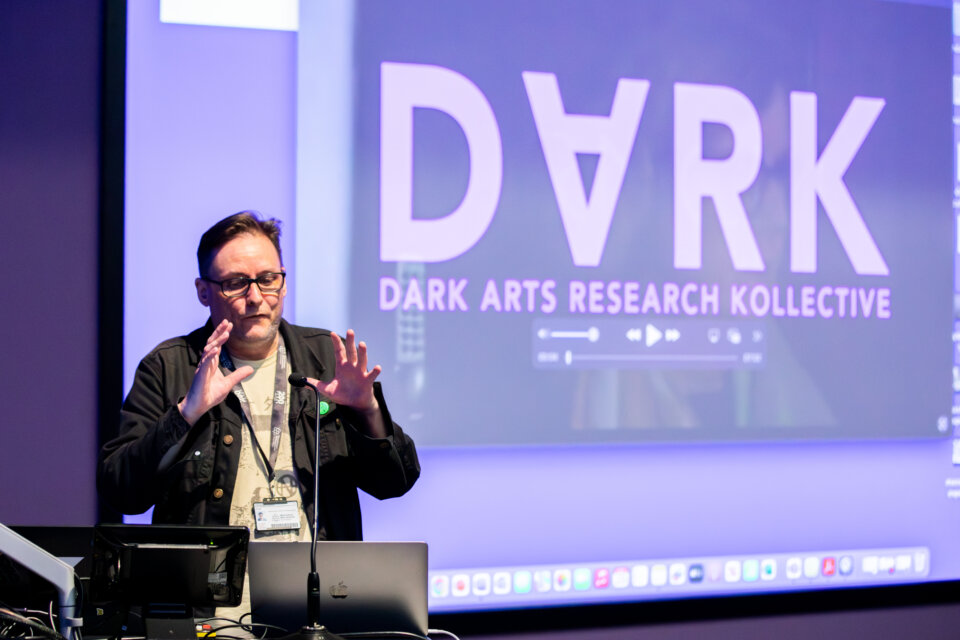From 3D sound to dementia care – highlights from an event exploring how IP helps scale and safeguard creative ideas
What does it mean to protect the value of a song, a moment, or an idea? On the week of World Intellectual Property Day 2025, musicians, legal experts, academics and entrepreneurs gathered at the Royal Northern College of Music for ‘IP Beyond Music’ – a dynamic afternoon of lively presentations, discussion and insight exploring the role of IP in creative practice.
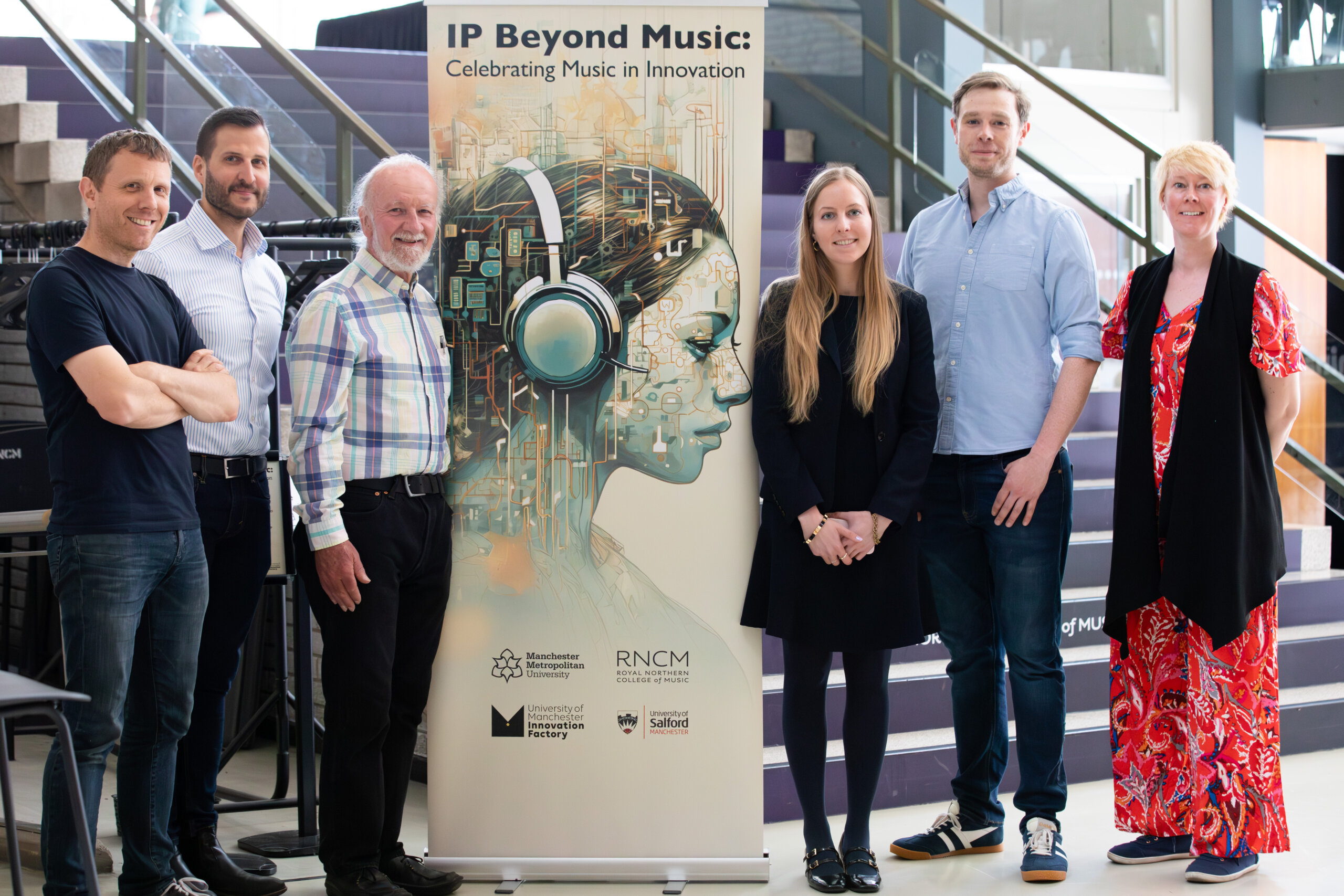
(L-R) Stuart McCallum , Nico de Villiers, Andy Penaluna, Melissa Hutter, Christopher Smith, Michelle Phillips
The event was opened by Dr Michelle Phillips (Senior Lecturer in Music Psychology and Head of Enterprise, Royal Northern College of Music), who set the tone for an afternoon that moved beyond copyright basics, delving into how intellectual property rights underpin innovation across music, health, education and technology.
“One of my favourite things about being part of Manchester’s fantastic higher education community is our long-standing tradition of collaboration. The more we work together, the stronger we become – and the greater the impact we can have. This event is about recognising people’s contributions, sharing our work with confidence, championing and protecting people’s ideas, and exploring how we can collaborate more effectively in what we create.”- Michelle Phillips (RNCM)
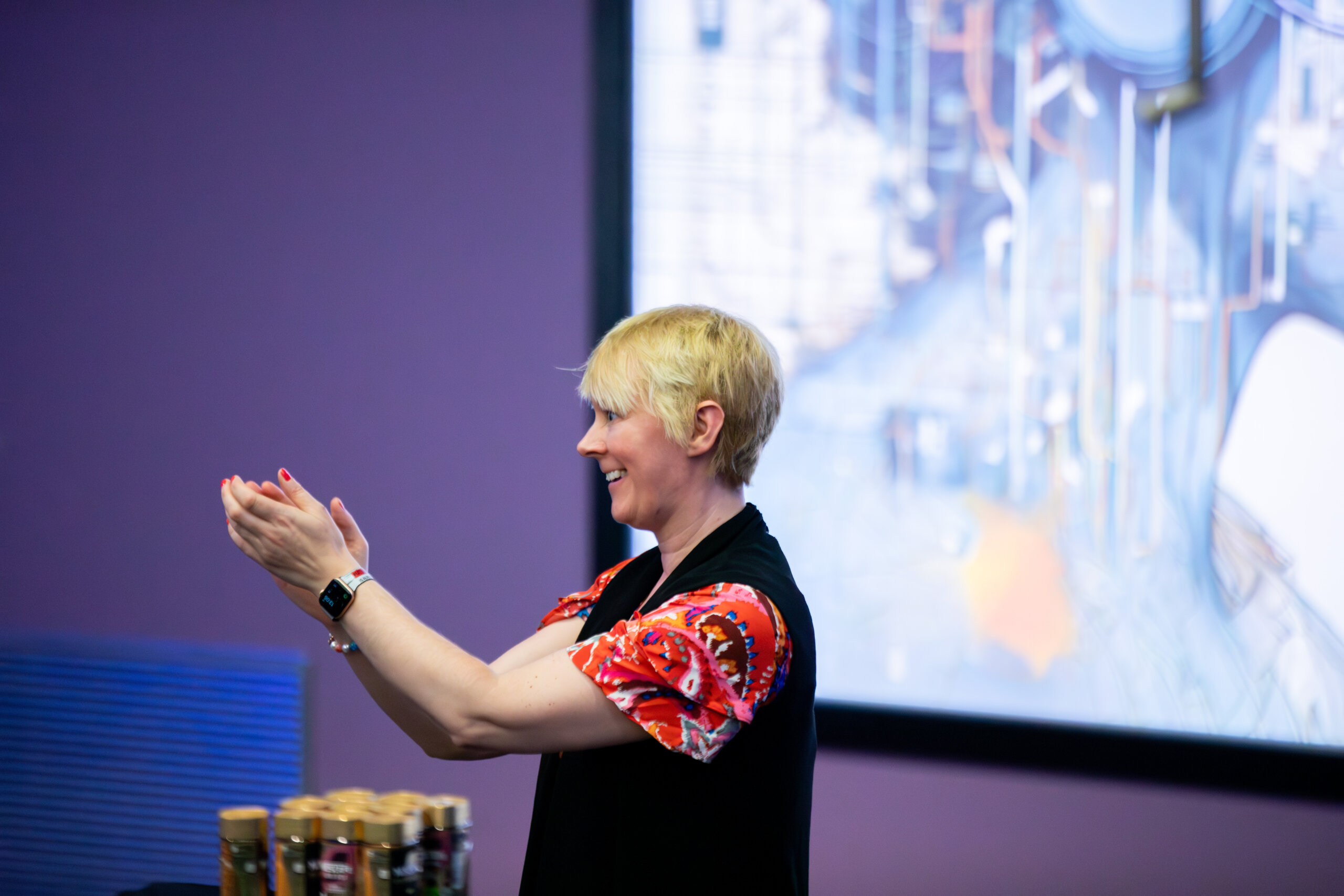
Dr Michelle Philips is a Senior Lecturer (Music Psychology), Head of Enterprise (RNCM) and a Chartered Accountant
Exploring Creativity in Practice
Dr Nico de Villiers (RNCM) showcased innovative tools for teaching lyric diction – where music meets language and expression. Drawing on his international experience, he highlighted how tailored teaching techniques can become unique, protectable assets, showing that IP isn’t just for inventions, but also for the creative methods behind education.
Guitarist and producer Stuart McCallum (RNCM) followed with an exploration of immersive audio formats, 3D soundfields and the transformative role of technology in both live and recorded music. He proposed that Manchester, with its rich cultural ecosystem, is perfectly positioned to lead in sound design and immersive music education. Once one venue embraces the possibilities of 3D sound, others are likely to follow—because by comparison, traditional setups will simply fall flat.
Professor John Keady (University of Manchester) gave a talk on Music in Mind, a spinout project from the University of Manchester supporting people living with dementia. He discussed how moments of musical connection can be protected and scaled through IP – ensuring greater impact and broader reach. “The value of moments” – both as personal connections and as protectable IP – was a recurring theme.
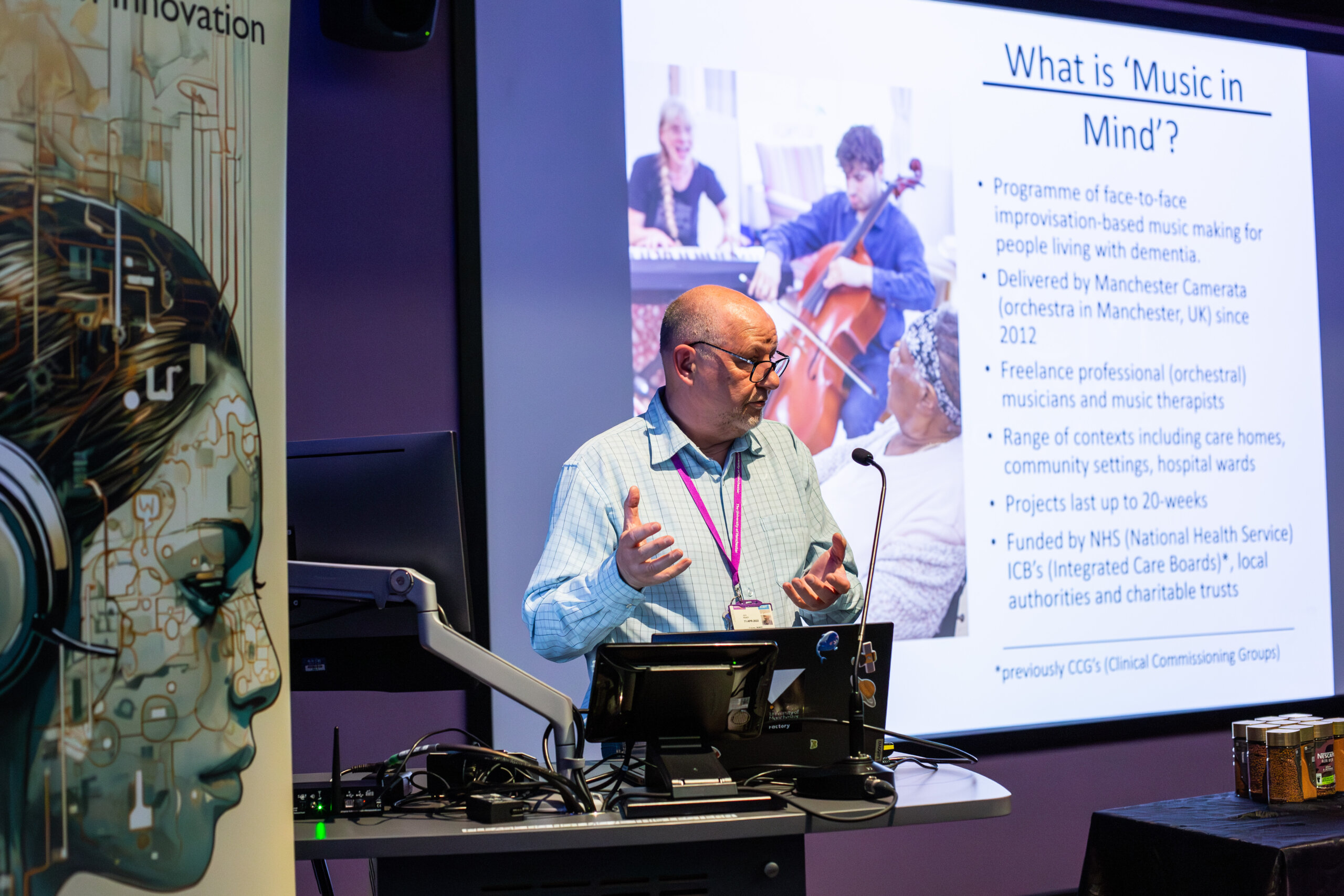
Professor John Keady (UoM) shares the story behind Music in Mind – a project using music to build connection and creativity for people living with dementia, and a powerful example of IP enabling wider impact.
From Practice to Protection
Invited keynote speaker Professor Andy Penaluna shared insights from his work bridging academia and creative enterprise. Using real-world examples – including a legal dispute over Eminem’s Lose Yourself – he highlighted the importance of protecting creative work from the outset.
Andy also discussed the importance of protecting artworks tied to music and film. He highlighted concerns over AI skimming, where AI systems might replicate original art without proper attribution. By securing IP rights and ensuring works carry an author’s stamp, creators can maintain control, prevent unauthorised use, and maximise revenue opportunities while preserving their artistic integrity.
Panel Discussion
-
Melissa Hutter, Solicitor at Russells, the entertainment law firm
-
Andy Penaluna, Professor Emeritus of Creative Entrepreneurship
Together they discussed the legal must-knows: from how copyright is automatic once work is fixed in a tangible form, to why creatives should always keep good records. Far from hindering creativity, IP rights were framed as enablers – tools that allow creators to share their work on their own terms.
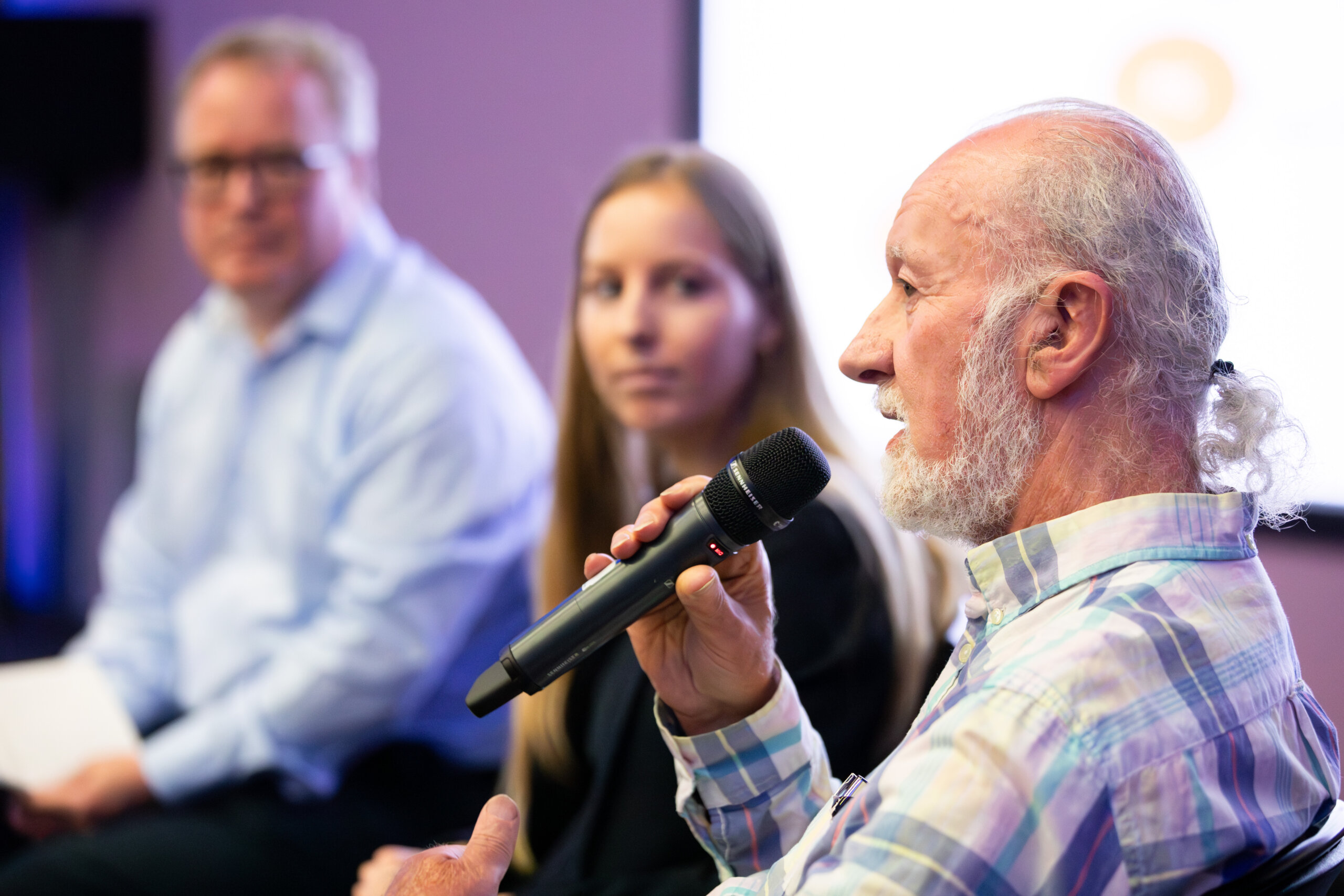
(R-L) Andy Penaluna, Melissa Hutter and Lee Curtis
Innovation in Action
The second half of the event brought together projects from across Greater Manchester’s universities. Dr Kirsty Fairclough (MMU) introduced presentations from:
-
Dr Jason Hockman and Neil Bruce (MMU) on AI and sound research
-
Sarwat Howe (University of Salford), who shared the story of Salsa Sound and Arts for the Blues as case studies in commercialisation
-
Ricardo Climent (UoM), who showcased work on AI beatboxing and string duels
-
Chris Gladwin (MMU), founder of Dark Arts Research Kollective, blending counterculture with tech
-
Emily Howard (RNCM), who introduced PRiSM – the Centre for Practice & Research in Science & Music
Key Takeaways from our Speakers on Protecting Your Creative Work
Record your creations from the very beginning.
Keep clear records – sketches, notes, audio files, emails, even photos – as these can serve as evidence of your original work. You never know when you might need to prove ownership.
Be proactive about protection.
Intellectual Property (IP) isn’t just for ‘finished’ work. Seek advice early – even if you’re still at the idea or draft stage. Getting input from an IP professional early on can save time and avoid disputes later.
Don’t publish too soon.
It’s tempting to share your work online, especially in creative fields. But once it’s out there, you may have fewer options to protect it. Make sure your IP rights are secured first.
Your mobile phone is a powerful IP tool.
A simple voice memo or video clip can act as a timestamped record of your creative process.
Creativity is human – and valuable.
In an age of generative AI, it’s more important than ever to protect the originality and authorship behind your ideas.
IP doesn’t stifle creativity – it safeguards it.
Protecting your rights allows you to collaborate, scale, and share your work on your own terms.
Keep organised records.
Date your files, back up your materials, and consider how you’ll store and track your creative output over time. Good documentation can support licensing, partnerships, and even legal claims if needed.
The message from this session was clear: innovation doesn’t just happen in the studio or lab – it happens when ideas are protected, nurtured, and brought into the world with the right support.
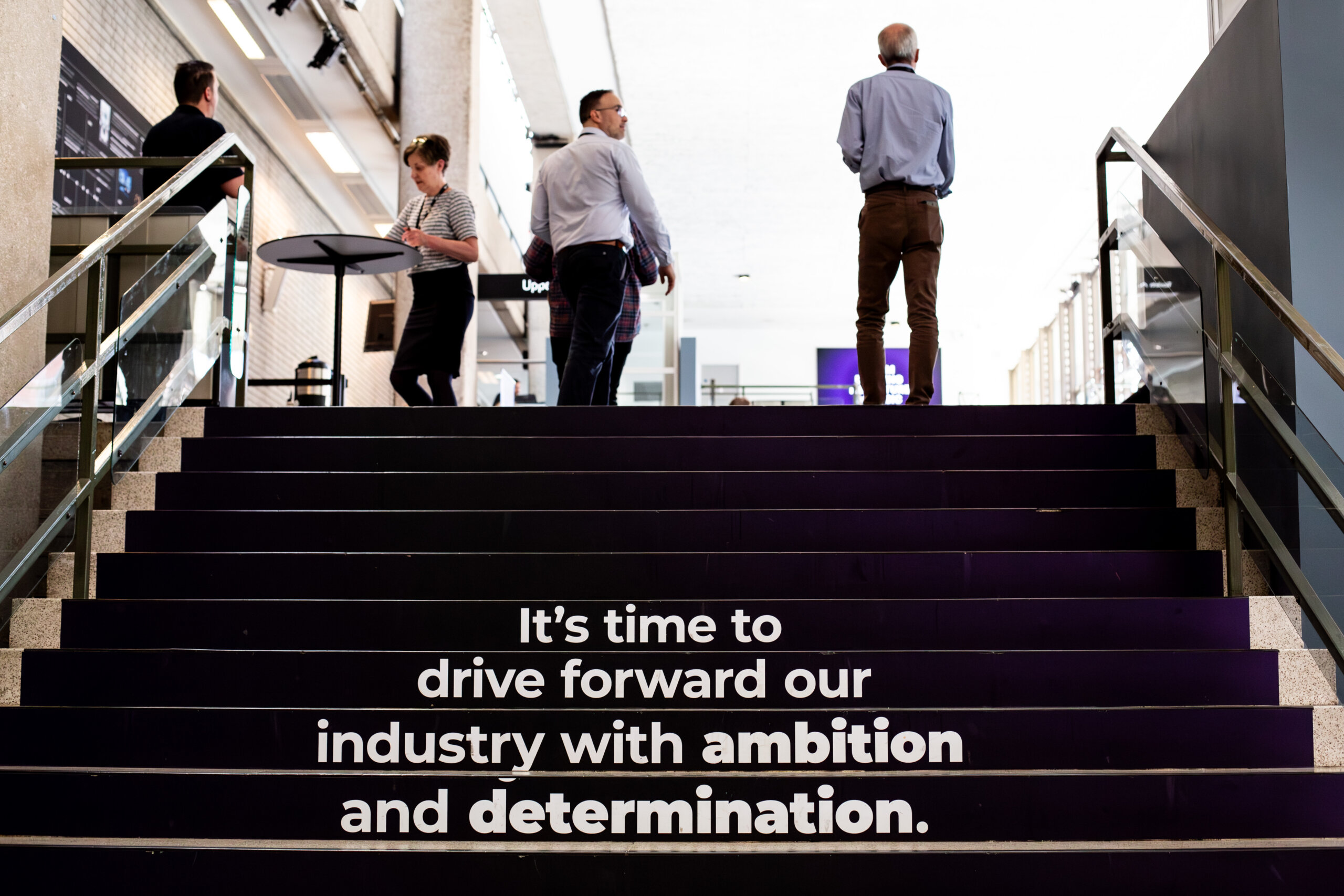
CCF RED
The day closed with thanks and a reminder that collaboration between artists, researchers, lawyers and entrepreneurs is vital to the future of the creative industries.
The event was funded by the CCF RED project, which is supporting collaboration between the University of Manchester, Manchester Metropolitan University, the University of Salford, and the Royal Northern College of Music. It forms part of a wider effort to share knowledge and resources around intellectual property, helping creative and academic professionals across our partner HEIs better understand how to protect, manage, and make the most of their ideas.



